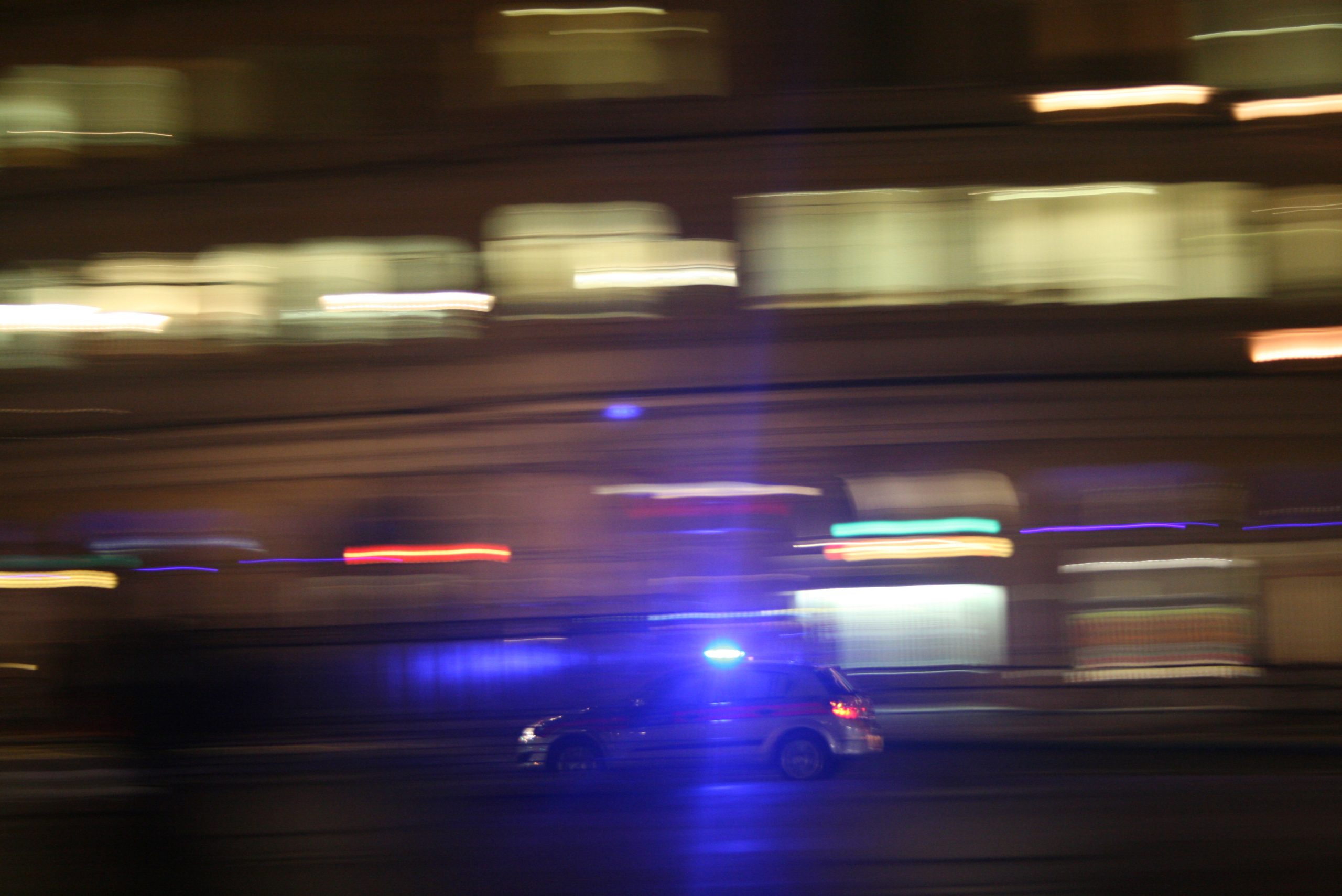Collateral damage: protecting the children who witness police raids

Picture by The Essex Tech (Flickr)
Kevin was just eight years old when his older brother was arrested for murder: ‘The way they knock on the door is terrifying. I can’t remember how many police there were. I was just told to go upstairs. They didn’t talk to me. No-one told me anything. They searched my bedroom too. It was a tip. I was just very confused. I couldn’t really say I was hurt or angry until after, when I saw what they had done to my room. I still think about that day all the time. You get flashbacks a lot. It gave me a general hate for the police, not for the reason that they took away my brother. It’s for the way they did it. I’ve not had one piece of support ever since that’s happened from anywhere. I coped with it by myself, on my own. Even my mum couldn’t really help me at the time.’
Every day, somewhere in England, the police will be raiding a house. These raids are critical to catching criminals and making our communities safer. But to ensure that arrests are made and evidence is found, these raids are fast and unexpected. And for the other family members in the house – innocent bystanders – they can be a terrifying experience.
As many as 80,000 children experience this each year. But the exact scale is still unknown. Until now there has been very little focus on this issue. These children should be protected by Article 16 of the United Nations Convention on the Rights of the Child: ‘Children have a right to privacy. The law should protect them from attacks against their way of life, their good name, their families and their homes.’ But instead they are overlooked and disregarded, perhaps because underneath it all we write them off because they have come from bad families where it’s easy to think that the apple doesn’t fall far from the tree.
Beyond these rights, the evidence points to two critical reasons why this issue is important. Firstly, the imprisonment of a parent is now recognised as a traumatic ‘adverse childhood experience’, with the trauma that is experienced increasing when the child also witnesses the arrest. It is clear that the trauma is further magnified when this happens in a violent and sudden way in a child’s own home. This trauma then contributes to mental health problems, difficulties with social relationships and behaviour, physical illness, and poor school performance.
Secondly, having a family member in prison increases the likelihood of another family member going on to offend. There are many factors in this, but an important aspect is the correlation between how the arrest in handled, and the future relationship between a child and the police. A recent report for the All Party Parliamentary Group for Children on building good relationships between children and the police supported this, and in particular that a child’s first interaction with police officers can have a significant impact on how they view the police thereafter. Examples of first encounters included being present during a police raid on their home.
The creation of significant trauma and the breakdown in trust with the police result in long-term issues both for the children themselves and for society more broadly. Yet currently in the UK only one police force systematically provides any training in this area, meaning that any good practice is piecemeal and depends on the individuals involved.
However, good examples can be found of how change can happen. The most significant example of a change in practice is in San Francisco, which has happened at the direction of the Chief of Police Gregory Suhr, after hearing the testimonies of youth advocates. Those young advocates were part of the Children of Incarcerated Parents, San Francisco which put together an eight point bill of rights. Of these, the first focuses on the arrest and the importance of recognising their complex emotions during this process. Now the police have adopted a trauma informed approach to arrests.
As part of this, all police have child development training, which includes: getting down to a child’s level; giving teens time; letting the offender say goodbye; and handing over teddies.
So there are simple and cheap things that can be done to drastically reduce the harm done to these children and to society. And we urgently need to take steps to make this happen.
My recent report Collateral Damage points to four key next steps:
- The police, led by the National Police Chief’s Council’s lead for Policing Children and Young People, should run a data project to identify the scale of this problem. This could be done on a minimal budget using sample areas.
- Academics should undertake further research to pinpoint the key factors that contribute to the trauma so that police can be reliably informed of what will really make a difference.
- Charities working with young people or with families of prisoners should seek to provide targeted support for this forgotten group – not only listening to them, but also supporting them to become advocates for themselves and their peers.
- The police, led by the College of Policing, should do more to increase awareness of police of the traumatic impact on children and the long-term effects of this.
Solutions need partnerships between all agencies, free from blame and finger pointing. Without this concerted action we will continue to fail thousands of children who are the innocent victims of their families’ actions.
You can download Collateral Damage here






